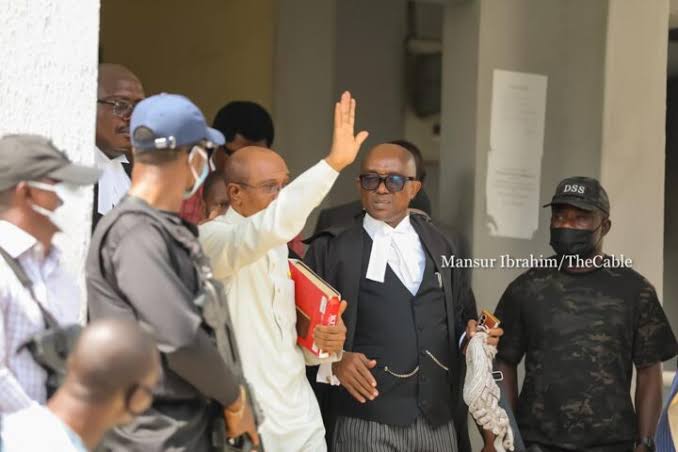IMF endorses CBN's policy shift amid growing economic optimism
At the heart of this transformation is the restoration of central bank independence. For years, the Central Bank of Nigeria (CBN) was weighed down by fiscal pressures, particularly through excessive use of the “Ways and Means” facility—an emergency funding mechanism that had far exceeded statutory limits. As of April 2025, those advances have been slashed by nearly 90 percent, with the IMF describing this as the “discontinuation of deficit monetisation,” a key step toward “strengthen[ing] central bank governance to set the institutional foundation for inflation targeting.” This renewed independence has helped anchor the CBN’s primary objective: price stability. Headline inflation, which soared above 40 percent, has dropped to 22.9 percent as of May 2025. The IMF noted that the Central Bank is “appropriately maintaining a tight monetary policy stance, which should continue until disinflation becomes entrenched.”
The IMF also praised the government’s foreign exchange reforms, calling them a critical piece of Nigeria’s economic reset. Under Governor Olayemi Cardoso, the CBN dismantled the long-standing multiple exchange-rate regime, replacing it with a unified “willing-buyer, willing-seller” framework supported by a new digital platform, B-Match. According to the IMF Executive Board Assessment, these reforms have improved price discovery and liquidity in the FX market. “Gross and net international reserves increased in 2024, with a strong current account surplus and improved portfolio inflows,” the Fund noted. The foreign exchange premium—the gap between official and parallel markets—has narrowed dramatically, falling from over 60 percent to under 3 percent. In the first quarter of 2025 alone, FX inflows rose to $6.9 billion, while external reserves peaked at $40.9 billion at the end of 2024, providing more than eight months of import cover—well above standard benchmarks. “Reforms to the FX market and foreign exchange interventions have brought stability to the naira,” the IMF observed.
These macroeconomic gains have not gone unnoticed by global investors. Nigeria successfully returned to the Eurobond market in January 2025, issuing its first bond in four years. According to the IMF, this reflects “strengthened investor confidence” and a “resumption of portfolio inflows.” The IMF also acknowledged progress in banking sector reforms. It “recognised actions to strengthen the banking system, including the ongoing process of increasing banks’ minimum capital,” and “welcomed the authorities’ efforts to boost financial inclusion and promote capital market development.” The CBN’s recapitalisation strategy, set for completion by March 2026, aims to bolster banks’ shock-absorbing capacity and align financial services with Nigeria’s ambition to become a $1 trillion economy. Alongside these structural changes, the CBN is advancing financial inclusion through initiatives like the Women’s Financial Inclusion Initiative (Wi-Fi) and enhanced digital banking platforms to reach underserved communities.
In governance and compliance, the IMF “welcomed progress made in strengthening the AML/CFT framework,” referring to Nigeria’s fight against money laundering and terrorism financing. Still, the Fund emphasized the urgency of resolving remaining deficiencies to enable Nigeria’s exit from the FATF grey list—a designation for countries with strategic anti-financial crime weaknesses.
Nonetheless, challenges remain. While inflation is falling, it still weighs heavily on households. Infrastructure deficits, insecurity, and fiscal risks continue to threaten economic progress. The IMF warned of the need to address “security, red tape, agricultural productivity, infrastructure gaps, including boosting electricity supply, as well as improved health and education spending, and making the economy more resilient to climate events.”
Despite these headwinds, the IMF’s overall tone was one of cautious optimism. It noted that “recent reforms should help establish a strong foundation for sustained and inclusive growth,” crediting fiscal and monetary tightening and exchange rate reforms for improved macroeconomic balances. But in an increasingly volatile global environment, the Fund added that “nimble policymaking is needed to navigate this fast-moving and volatile environment. Strong policy coordination and communication are key.”
Reflecting on the IMF’s endorsement, Governor Olayemi Cardoso said, “At a time of global uncertainty, this assessment reaffirms that responsible, forward-looking policy choices matter. It affirms that Nigeria is regaining credibility, anchoring expectations, and laying the foundation for inclusive, long-term growth. It is both an encouragement to stay the course, and a reminder that resilience and prosperity require continued discipline and vision.”







